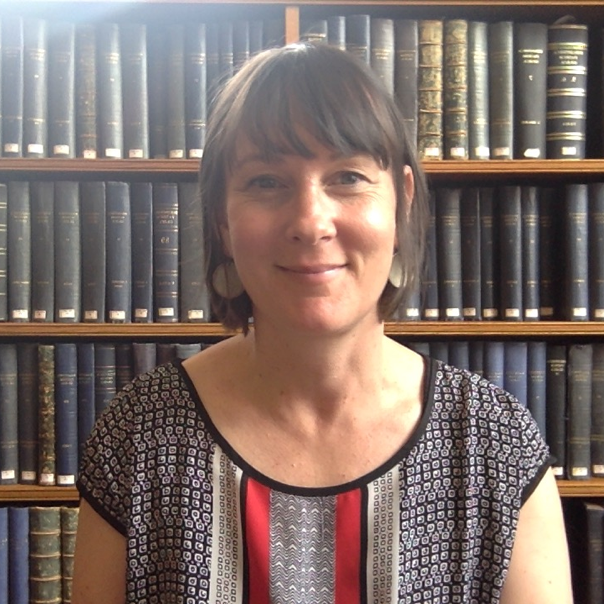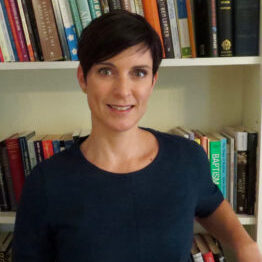Episode Transcript
[00:00:05] Speaker A: You're listening to by the, well, electionary.
[00:00:07] Speaker B: Based podcast, preachers recorded on the land.
[00:00:09] Speaker A: Of the Warunderi people.
Hi, all. I'm Kylie.
[00:00:19] Speaker B: And I'm Monica.
[00:00:21] Speaker A: And today we're going to be speaking to you about Lent. Three readings. So, Exodus 20, verses one to 17, psalm 19, and one corinthians. Chapter one, verses 18 to 25, will be our focus for discussion. So, to get us started, Monica, can you kick us off with a bit of information about our reading in Exodus? What's the context here? What do we need to know as we approach this? Okay.
[00:00:51] Speaker B: Exodus, chapter 20, verses one to 17, contains what are called the ten commandments, or the decalogue. And these rules and regulations stipulated here are best understood in light of the experiences of the hebrew people up to that point. Okay. And I think we need to remember or recall that in Genesis 15, verse 13, we are told that they would be in slavery for 400 years. And this generation, now that Moses is addressing, is actually a generation that was born in slavery, or you can say born in captivity, abused, suppressed, completely subjugated in a system that perhaps did not see them as humans. So when Moses begins negotiations with the pharaoh to have them released, the oppression and the labor was intensified, as if you recall Exodus, the first part of Exodus. And we do not know how long this process of negotiation took, but there are illusions, particularly chapter six, that the people were so broken in spirit that Moses had difficulty in communicating with them. And so this is something that needs to be and should be imagined. Centuries of oppression can take away and erase many things in a people imagination.
Hope, just the ability to conceive freedom, what freedom is like. So they had no spark of hope or faith left in their hearts, and their spirits are broken. And it was as if Moses was talking.
[00:02:35] Speaker A: Completely other language or so, because.
[00:02:39] Speaker B: Until now, they had seen no hope, they had seen no promise, they had seen no life.
And so how could they believe what Moses was saying? And so all they knew was slavery. The cruelty, the violence, the fear, the anger, the.
So here, Moses needs to not only secure their physical release from Egypt, but he had to also work on their minds and their bodies and allow them to imagine now what freedom is.
And so in chapter 19, very quickly, they have arrived at Sinai. Moses is conversing with God. And God tells them that the people should recall what God has done in Egypt and how God is now going to carry the people of Israel on eagle's wings. And now God has brought them to God's self.
And then God says, if you obey me, fully and keep my covenant, then out of all nations, you will be my treasured possession.
[00:03:44] Speaker A: Okay, so we're at that point, we're thinking like, you've had this kind of experience of trauma and stuff, and then how does it feel? So this is God's address to you. And so this is immediately before what we're going to move into.
[00:04:00] Speaker B: So here the people are at Sinai and they are hearing God speaking, but there's thunder and lightning and a sneaky suspicion whether it was fear that, yes, we will do everything that you ask us to do, but they agree to entering into this relationship with God. So the first thing that God is doing in chapter 19 is to say, you are my people. Okay? And now we have a relationship, if you agree to this. And the relationship, therefore, is based on.
[00:04:38] Speaker A: Some mutual understandings here, right?
[00:04:40] Speaker B: Yeah. And I think all of us know that for a relationship to work, there needs to be expectations. There are expectations. There need to be some rules of interaction.
We have to just stop for a moment and think about how our relationships work in the world today, whether it is between employer and employee, husband and wife, parent and child, friends, even two girls or two boys, having friends or classmates or workmates, your colleagues, every relationship is bound by the word regulations and rules. Sounds very strict and stark, but there are expectations. And when those expectations are not met, there is a breach in the relationship or there's a break in the relationship.
So first of all, we need to talk about what is it that make relationships work? And I guess that is what the text is alluding to. And what we have in Exodus 20, therefore, is, are these rules and regulations that are going to undergird the relationship that God and the people of Israel are going to have.
[00:05:56] Speaker A: Yeah, I really like how you put it. This is the foundational kind of expectation sort of navigating this relationship. And I guess one of the things, I mean, people will be very used to having the Ten Commandments talked about as a set of kind of laws or regulations in a kind of almost, I was going to say, in sort of almost criminal justice kind of framework or something, as it might be used in the play the crucible or something like this. Right. But actually, one of the things that's interesting about it, it seems to me, is that these are not written like those kinds of rules. There's not a set of sentences associated. Is this the thing we should be noticing here?
[00:06:43] Speaker B: Well, you should be noticing that these are, first of all, foundational rules that are really essential for this relationship to work. And there are two main parts. The first part talks about the relationship with God, how you relate to God. And the second half rules with regard to how you relate to your neighbors.
So therefore, the vertical and the horizontal are taken care of in very, very basic terms, simple sentences.
Most of these rules don't stipulate what will happen if you disobey them. Yes, because they function as kind of a preamble to the book of the covenant that follows, which has hundreds of other rules with regard to what happens, what is it that you're expected to do and what happens if you don't, and what the punishments are. But first, the set of ten do not give you specific the consequences. Do not mention the consequences of disobedience.
[00:07:46] Speaker A: Different kind of.
Okay. So other things that I was wondering about when I read this, and I wanted to ask you, I really noticed, and I wonder if some others of our readers, our listeners, will also have noticed this, the language that we get. I'm going to open the correct verse to get this, but the section that we've got about I am a jealous God. So this is in verse five, reading from the NRSV.
I, the Lord your God, am a jealous God, punishing children for the iniquity of parents to the third and fourth generation of those who reject me.
And of course, I also noticed the next verse where there is a contrast. And here we've got God showing steadfast love to the thousandth generation of those who love me. So on the one hand, I'm wondering if we're thinking here, and especially hearing you speak about that enslavement context that people are coming from, there's an expectation that our actions affect future generations. So is the point here, the asymmetry, the difference between the way that the number of generations the punishment has an effect on and the thousand generations that steadfast love is going to affect. So that's one of my questions. But the other part is just, I mean, is there anything about the way that jealous God is being talked about here? Should we be worried about a God described like this?
[00:09:20] Speaker B: Some people would be, yeah, some people would be. Again, in relationships, yes, there's always a partner who's perhaps a little more committed to the relationship than the other. I don't know. But here is a God who is saying, yeah, I love you. I want you to be my people. I have selected you to be my treasured possession. Therefore, I'm going to do everything that I can to keep you within my fold. And I guess the word jealous can be misunderstood.
[00:09:49] Speaker A: Jealousy, toxic masculinity at this point. But is there more to it in the Hebrew?
[00:09:55] Speaker B: I don't know. I mean, the thing is, the word can also be translated as, I have a zeal. The word is zeal. So it's a passion.
Of course, passion, taken to the extreme, can be also difficult, sure.
But basically God is saying, yeah, I'm going to fight for you. I'm going to do everything in my power to ensure that this works.
Sometimes it could also lead to a little bit of violence, I suppose. I can't think of how better to explain this notion of jealousy. But the word jealousy is, I'm going to be loyal to you. I'm going to be caring for you. I'm passionate about you.
[00:10:41] Speaker A: I'm passionate about you. And there is this framework for punishment, but in fact, my passionate love is actually going to be far more enduring the thousand generations.
[00:10:52] Speaker B: Generations, yeah. But I think we also need to acknowledge that. We think whatever we do has only consequences for us in the here and the now. But there are always repercussions for the future for someone else. Decisions that you make have implications for people around you, whether you are aware of it or not.
And I think that is what the text is saying, that you need to be wise in how you behave because it can influence your children.
[00:11:24] Speaker A: Yes.
Which we probably do know.
[00:11:28] Speaker B: Yeah. I can think of hundreds of conversations with my daughter who will say, but you said this, but you do it, so why can't I?
This is the intergenerational consequence of something that you do or something that you say or how you behave has repercussions. And I think just to be cognizant of that or to be aware of that is extremely important.
[00:12:00] Speaker A: And we can imagine lots of structural issues. Of course, climate crisis is like a very present one. Globally. We have all sorts of conversations about, in our australian context, about the intergenerational consequences of the colonial setting in Australia. So, yeah, lots of things that resonate, I think, with that future consequence.
[00:12:25] Speaker B: I think even the first part of these set of commandments are significant in that you've had all these human leaders now who've been telling you how you should behave, and you're under my control. Pharaohs have been jealous as well, if you think of how they functioned. I'm not trying to equate the pharaoh and Yahweh here, but there's a certain jealousy that the pharaoh also exudes.
It's a jealousy that is also based on power, on control. Whereas I think the jealousy that is spoken of in relation to Yahweh, the God here, is not controlled. There's a certain freedom as well, and says, you should worship me.
That's the distinction that is being made between the leaders that you've had until now and I, who am now going to lead you so that you might become my treasured possession. One can make a difference between how the pharaoh functioned and how Yahweh functions.
[00:13:34] Speaker A: In the first part, that's great thinking then about the second, not quite half a bit over half the second section of commandments.
I mean, I'm thinking about how we might use it in worship, and it might be that people actually do, do some conversation about this in the context of these, and then focus on one or two of the things in their reflections. One of the ones that particularly stands out to me is the commandment about keeping Sabbath.
There are things that stand out to me, especially listening to you speaking about the enslavement context about that. The Sabbath passage specifically, specifically mentions the need to give rest, not only yourselves to keep rest, but to give this rest to your slaves.
[00:14:28] Speaker B: Yeah, I think this is quite the revolutionary aspect of this law has to be emphasized. Here's a community that had no rest, that always had to be at work at the beck and call of their masters while in slavery. And so here God is ordaining a day of rest, which is applicable not just to those in positions of power, but to everyone, including the ass and the donkey.
And actually, the deuteronomy actually spells it out. Why? Because you were slaves in Egypt.
So in Exodus, that is not mentioned. But the fact remains that for people, this is like the icing on the cake. We are free, but we also get a day of rest.
I was just recently introduced to this book called rest as resistance.
[00:15:29] Speaker A: Oh, great.
[00:15:30] Speaker B: And I guess for me, I haven't read the book. I just heard about it, but one can look up google, I think, to find it. But basically, what hit home for me is this notion of the fact that is this notion that rest is embedded within the very act of the very act of creation, and therefore it is a resistance against this really busy life that we tend to live. So there are a lot of things that one can be said today where we think the more busy we are, the more important we are.
[00:16:13] Speaker A: This connects exactly to the story and resource that came to mind for me about this. That is from a book called practicing our faith that's edited by Diana C. Bass. And I can put a note in the show notes about that. But this book, it's not a new book. But it was quite foundational for me because I grew up with resources like celebration of discipline, thinking about the kind of parts of a faithful life. And then this book was much more invitational. And actually, the story about how they came to write this book is that it was a group of people sitting around over lunch on a Sunday, talking about how busy they'd been.
And one of the people suddenly stopped in this conversation and said, we're actually talking about breaking a commandment here. We're doing it really blithely. We're almost bragging about how busy we've been. And together they made a commitment to try and keep Sabbath and to see what change this made in their lives as the first of the practices in this book that they then went on to follow.
And they noticed all sorts of things which fits exactly with this reading. For instance, one is that they noticed that it didn't matter if everybody stops for a day. It didn't matter whether you had too much work or too little work through the week. You were all actually the same on this day. And obviously, there are different ways we need to navigate with people on lower wages might not have flexibility to work out when that time is that they might be able to stop, and they may actually not be able to stop, but how are we embodying that kind of unbusiness?
I love the title of the other book. That is an act of resistance, resistance.
[00:17:55] Speaker B: Against the busyness of life.
Because God rested, we are entitled to those. This being created in the image of God also means that we do what God did, and that is resting and giving rest.
[00:18:10] Speaker A: Giving rest. We have any kind of direction over, I guess. Yeah, okay. There's heaps of great stuff in that reading. I think if we move on now, we're going to talk about, very briefly about psalm 19.
[00:18:28] Speaker B: U. Yeah, psalm 19.
Very interesting psalm that calls to. That recalls a number of major biblical themes, such as creation law, sin, forgiveness, and ethical conduct. I guess in a way, that's the reason why it relates also to the exodus text, the emphasis on ethical conduct. And so the psalm offers us a very rich collections or collection of images upon which we can reflect on.
I think, as part of the task of the preacher is to see which of these themes speak to you and which might relate to the needs of your particular congregation and bring those into conversation with each other and with the context in which you are.
[00:19:28] Speaker A: You might say this psalm is a bit of a rich feast of things. You can kind of pick out which dish you're wanting to match with the other dish, you're working with.
[00:19:38] Speaker B: The theme of creation, the theme of the law or the scripture or the Torah. If you're working with the hebrew text and recognizing what creation is saying to us about God, recognizing what the Torah or the law or scripture is demanding of us, and recognizing the virtues that will result from a study of the scripture, and so therefore, you find that the three sections of the psalm, you have creation in the first part. You have the Torah or the law or instruction in the second part.
And then the third part is the need for God's salvation.
Yeah. So in a way, the text is a conversation between creation instruction and the salvific power of God.
[00:20:48] Speaker A: That's great. And it seems like it's setting out these kind of big picture things about God's orientation to creation and our way of operating. And one of the things that we could pick up is the statement about the decrees of the Lord. Make the wise simple. Which is, as we're going to find out, I think, shortly connects directly into one of the New Testament readings for this week, which is first corinthians, chapter one. Yeah, we might now move into that.
[00:21:17] Speaker B: Yeah.
[00:21:20] Speaker A: Did you know you could join our.
[00:21:21] Speaker B: Facebook group by the well for extra content?
[00:21:24] Speaker A: And.
[00:21:28] Speaker B: Hmm. What can you tell us about this text? I'm a little lost, I will confess.
But, yeah. Would lean on your wisdom. As a scholar who is referred to in this.
[00:21:44] Speaker A: Is, I think, isn't this what we often find with the letter of Paul, that there's all these big picture stuff, big ideas, and they're kind of interconnected and in a way, you need to read a whole chunk of the letter to work out what's going on. In fact, sometimes Paul does this kind of back and forth rhetoric. That means that if you just literally read the passage under discussion, you might get kind of a little bit confused, or you might even in some cases, not this one, probably, but in some cases, you might get really the wrong end of the stick about it and need a bit more context. So for this, actually, I would fully encourage people to read from the start of the letter. This is a funny situation where because the lectionary in lent sort of picks and chooses a bit more, we don't get like kind of continuous narratives on any of these bits. We just suddenly get this section from first corinthians and you're not going to come back to it. It's just this bit. So really read the broader bit and be immersed in it. So what we're going to find is that it begins after the initial kind of sections of address like we get in these letters.
There's a section where we find out a bit about what's going on in the corinthian community.
And it's a case of division between people that Paul is really unkeen on. He's heard from some people that have come from Chloe, Chloe's people, that there is division. People are identifying with different leaders. Some are saying that they're of Apollo. Some are saying that they're of Paul. Sorry, of then, you know, there's this thing where Paul is like, I'm of is we should be unified in this kind of clearly. So he's got some rhetoric around that, but clearly there is some kind of underlying thing that is a division that's causing trouble. So part of what Paul is doing in the immediately preceding section of what we're going to have in today's reading is establishing his credentials as an apostle. And he's that who you're baptized into, Christ, is the main thing. And then he says, well, I'm grateful I didn't baptize you. Oh, well, actually, I did. A few people.
He's trying to show that, as he will in other places through the letter, that there is no leader who is more important than another, although he did found the community, and that does make him a little bit more important than others. But of course, the most important one is Christ. So he's building up this picture of his credentials, which then leads into this sort of section. So we've got the sort of like three parts, and the first part is the section we have for Lent, three for this Sunday we're talking about, which is a kind of big picture discussion about foolishness and wisdom.
And then it's going to move into a section afterwards that is about the way that foolishness and wisdom works in the community, saying, you guys all know that when you were called to faith, you didn't have it all together.
You went wise or strong in the eyes of the world. But look how this is working. And then he's going to talk about it in his own preaching, and he's going to talk about how he's not necessarily that impressive, but that only helps the truth of the gospel to shine through.
[00:25:12] Speaker B: Just to try and understand this emphasis on wisdom. Is there something about the corinthian community that called for this emphasis on wisdom? Did they have some notions of wisdom that Paul was uncomfortable with and that's why he felt the need to address the issue?
Would you have an answer?
[00:25:35] Speaker A: I don't have an easy answer. But there is this. Sometimes people will talk about these kind of different factional kind of groups as being like super apostles. So there are people who have maybe been charismatic leaders who are standing up and saying stuff and getting their own sort of following rather than the allegiance actually being to Jesus.
So part of what's going on here is him saying, well, I guess the implication is that there are other people who are claiming a kind of intelligence, know they speak in eloquent ways and they have all these kind of persuasive things on the go.
But actually, this is not what the truth of the cross is about. This is about something else. And so when Paul is less impressive or whatnot, that's because he's speaking the truth of the cross.
[00:26:30] Speaker B: Yeah. So basically he's contesting established notions of wisdom and sources of wisdom or sites of wisdom. And I find it quite intriguing that he mentions the scholar, the debater, and these are all people who would present themselves as the repositories of wisdom by virtue of their study and so on. And he says, no, there is a certain wisdom here, but there are limitations to this wisdom or your kind of wisdom doesn't have the impact that this community needs.
[00:27:13] Speaker A: Totally. I was reflecting on just this when I was reading this before recording this morning and thinking, what does it mean for two biblical scholars to get together and talk about what kind of wisdom? What is the expertise that we are bringing here in this kind of really quite important critique of that kind of thing? And you see that there are other sections in here where we have, there's nice rhetorical flourishes about Jews demand science and Greeks demand wisdom. So we've got this sense that there might be some kind of division between here. Sorry, the Greeks require wisdom, but in fact, we've got this, I guess that would be an example of two different kinds of evidence that might be demanded and that this could be a temptation.
It's written in these kind of caricatured ways to make these two groups. It's a style of greek rhetoric that people would use normally, contrasting Greeks and barbarians. But we've got this kind of thing being set up, but instead we've got. So for Jews demand signs and Greeks desire wisdom. This is verse 22. And then verse 23 says, but we proclaim Christ crucified, which is a stumbling block to Jews and foolishness to gentiles.
How we think about what kind of evidence we're looking for, that it's a demand, or we're proclaiming something which actually sort of undoes all of those systems of how we might approach knowing, how do we know that, how things are true?
And then, of course, I just would want to point out that, of course, after that, in verse 24, we go into Paul talks about those who are the called both Jews and Greeks. Christ is the power of God and the wisdom of God. So there isn't a contrast. This is not an anti jewish claim. It's also not actually an anti the nations claim, because the newly founded christian community has both groups within it. But the true group here are the people who can embrace this apparent total foolishness of the cross.
[00:29:44] Speaker B: Yeah, but as you speak, I'm also hoping that people don't read this text as one that is professing, no, thank you.
[00:29:56] Speaker A: That's right.
[00:29:59] Speaker B: Yes. All that I think Paul is saying is that wisdom is perhaps not sufficient.
[00:30:04] Speaker A: Or maybe there's a method difference. But coming at things only through that perspective doesn't ground things in the way. What we need to be making, the subject of our reflection is the foolishness of the cross. So it doesn't mean we're not using our whole selves, our intellects and whatnot in reflecting on the foolishness of the cross. But we're not persuaded, getting back to the kind of super apostles, we're not persuaded by the kind of snazzy rhetoric, the kind of showy claims. And we would be able to unpack this in a range of other ways in our contemporary setting, like what are the ways of seeing the world that are valorized but actually lead to nothing good? The kind of commercial interest, even thinking back to how we were talking about in Exodus, that the exodus reading was setting up a particular kind of structure of community. Well, what kind of structure of community does this reading lead us to? And I think that. I think you could do a lot worse than to just reflect entire for an entire service on verse 25. For the foolishness. For God's foolishness is wiser than human wisdom, and God's weakness is stronger than human strength. And how we think about what kind of human society would taking really seriously that verse create. We're thinking, we're recalibrating the categories of how our societies are structured, maybe putting the weaker at the center in line with our theology, our understanding of God.
And one thing I'd note about the Greek is that the greek word for weakness there, ethanos, is actually the same word as we get for whenever disability is mentioned in the New Testament. So here we're talking about God's. When you hear God's weakness, there'd be these other nuances, you might get God's ethanos.
What is that? God's infirmity?
And what does that mean if we're putting that kind of understanding at the center of our theology and at the center of our communities?
[00:32:32] Speaker B: Right. And it reminds me of people who are living in those situations of marginality, of powerlessness, of disability, not only physical disability, but disabled by structures and systems of oppression. And there is a wisdom that comes out of that experience, which I think is also the wisdom of God, because God intervenes, or God comes down into those situations of marginality like God did in Exodus, and uses these slaves actually to be God's treasured possession and the future of the world, so to speak.
So the wisdom that is embedded in the experiences of the poor, the marginalized, the subjugated, the abused, the trauma traumatized, I'll stop there.
[00:33:38] Speaker A: Yeah, well, actually, I think that that is a wonderful place to draw our conversation to an end, because what you're describing there, I think, as I think about how I might preach on this set of readings, I think there's a wonderful invitation to actually begin where we've ended here and to imagine a society grounded on this. Think about our theology and this invitation to learn from those kind of so called weak according to the world, the people who are addressed in the exodus reading as well in how we think about this through lent.
[00:34:20] Speaker B: Yes.
[00:34:20] Speaker A: Okay, thanks, Monica. Great to speak with you.
[00:34:22] Speaker B: Yeah, thank you.
By the well is brought to you.
[00:34:27] Speaker A: By Pilgrim Theological College and the Uniting church in Australia. It's produced by Adrian Jackson. Thanks for listening.





